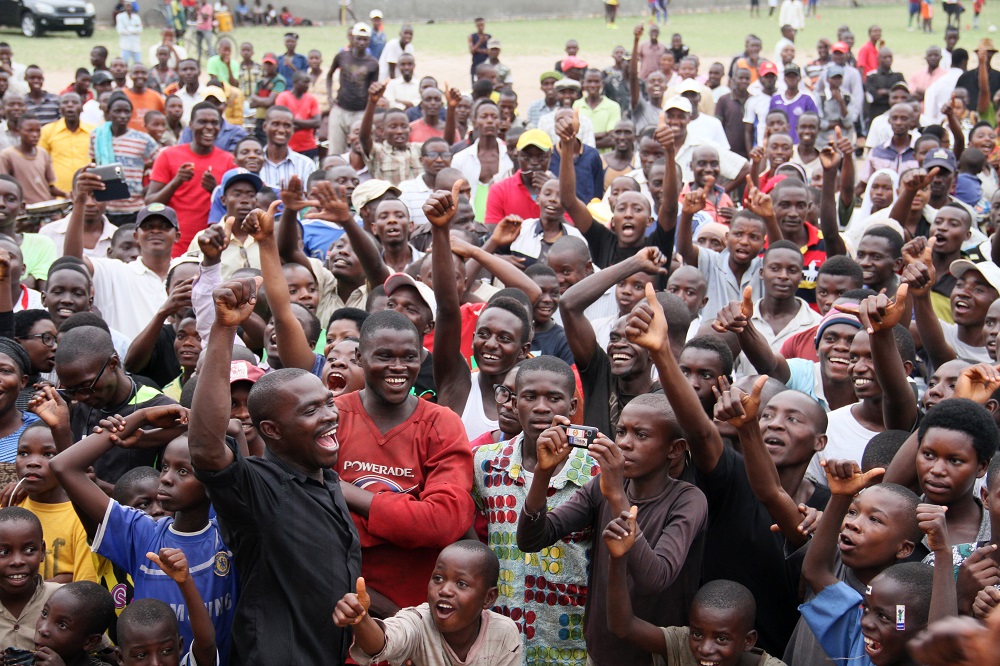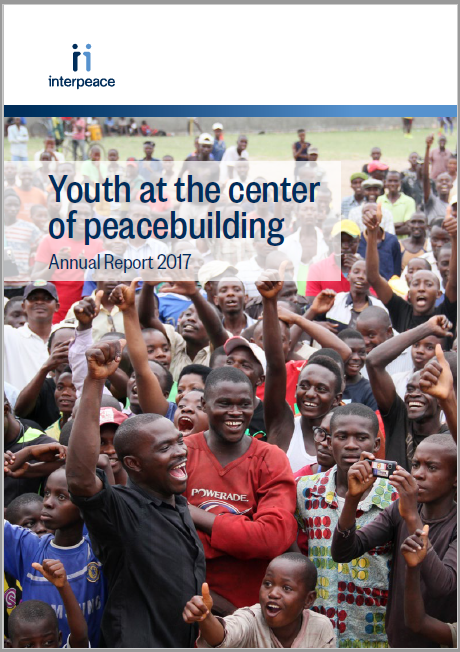Our Future is Now: Youth, Peace and Security

Youth have been stigmatized, marginalized and largely treated as the main protagonists of criminal violence. At the same time, youth are also paradoxically viewed as vulnerable and helpless. Recent policies and research have disputed these negative narratives however, acknowledging young people’s agency and positive roles in society, emphasizing how their involvement in decision-making processes is crucial for the development of sustainable and legitimate solutions for diverse social challenges.
In the past 24 years, Interpeace has sought to reach beyond limited models of “youth participation” and has put young people at the centre of the design and implementation of programmes that address the factors of most consequence to them. We are proud to work with youth groups around the world to try to better understand their needs and aspirations, what drives some young people to violence, and what strategies can be developed to harness their capacities for driving positive change in their communities.
It is vital that we stop fearing or underestimating young people and start acknowledging them as partners in the development of society. Our 2017 Annual Report, “Youth at the Center of Peacebuilding” illustrates how we are working with youth to transform conflict and build peace around the world. From identifying the root causes of youth related violence in Mali and Côte d’Ivoire, to implementing structures that provide positive sources of identity and recognition in El Salvador; and from helping vulnerable youth become narrators of their own stories in Honduras, to providing spaces for inclusive dialogue in Burundi, Rwanda and DRC, where youth are becoming central actors in the pursuit of sustainable and lasting peace.

